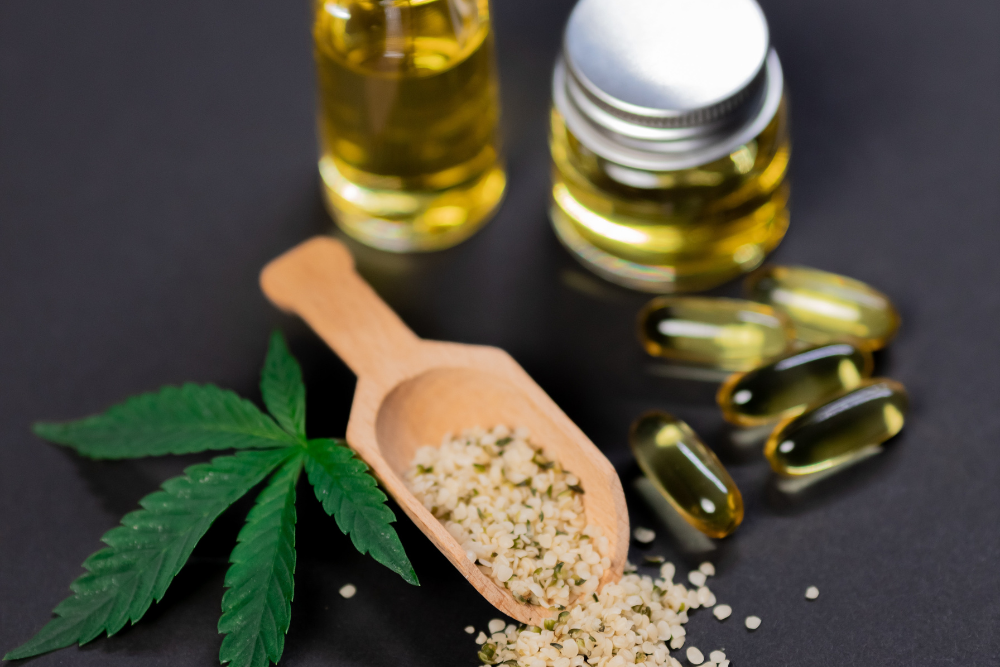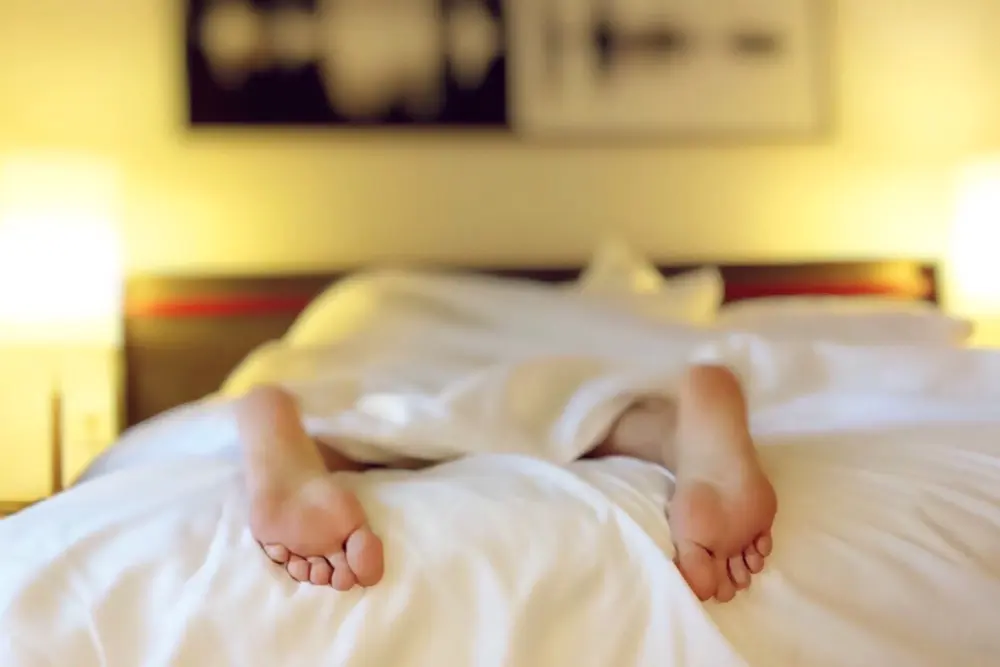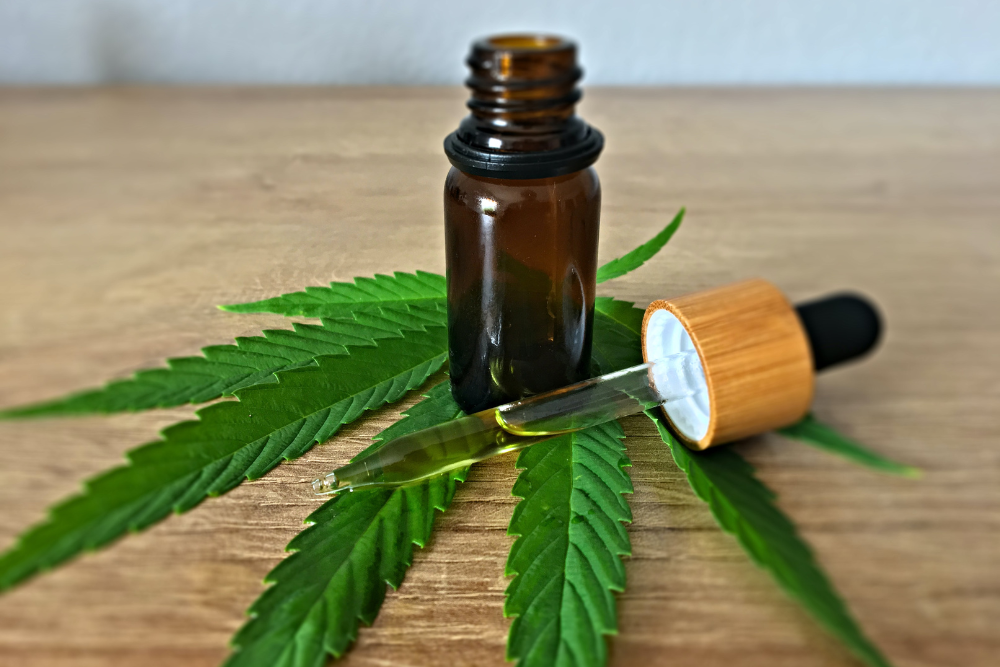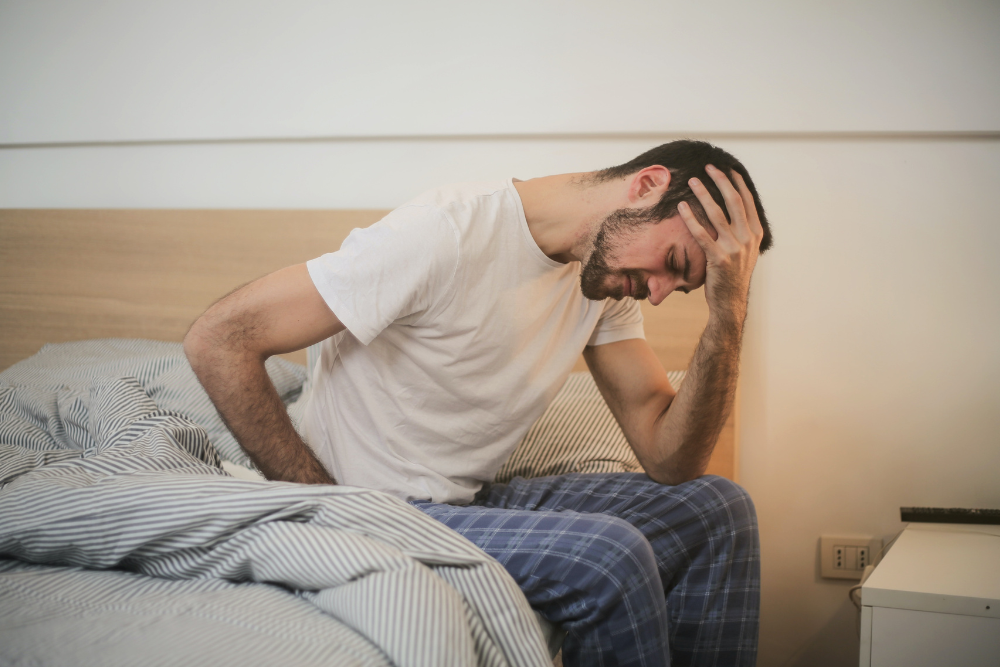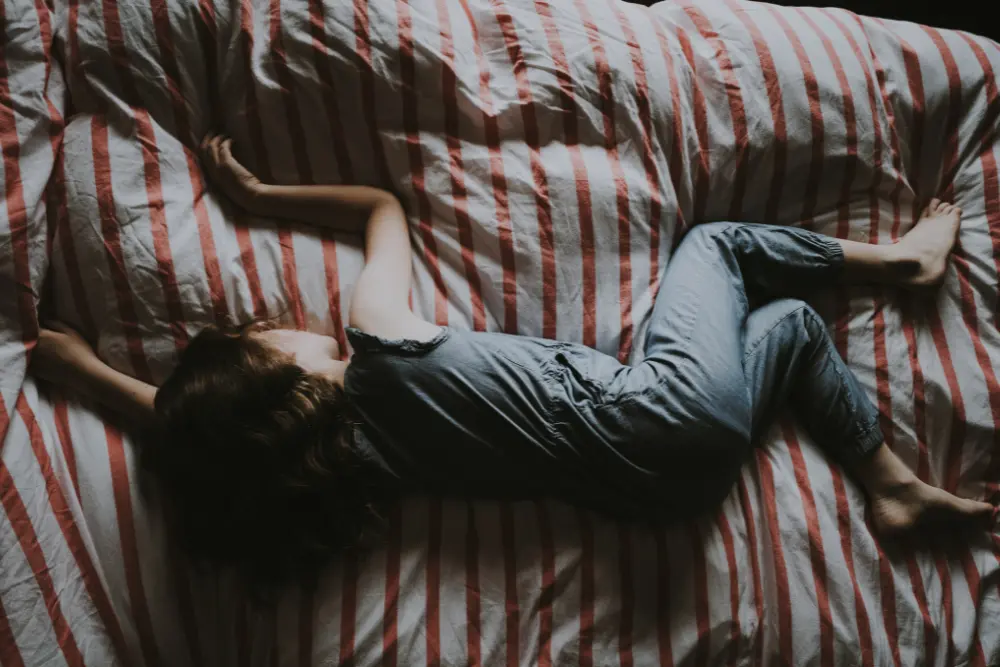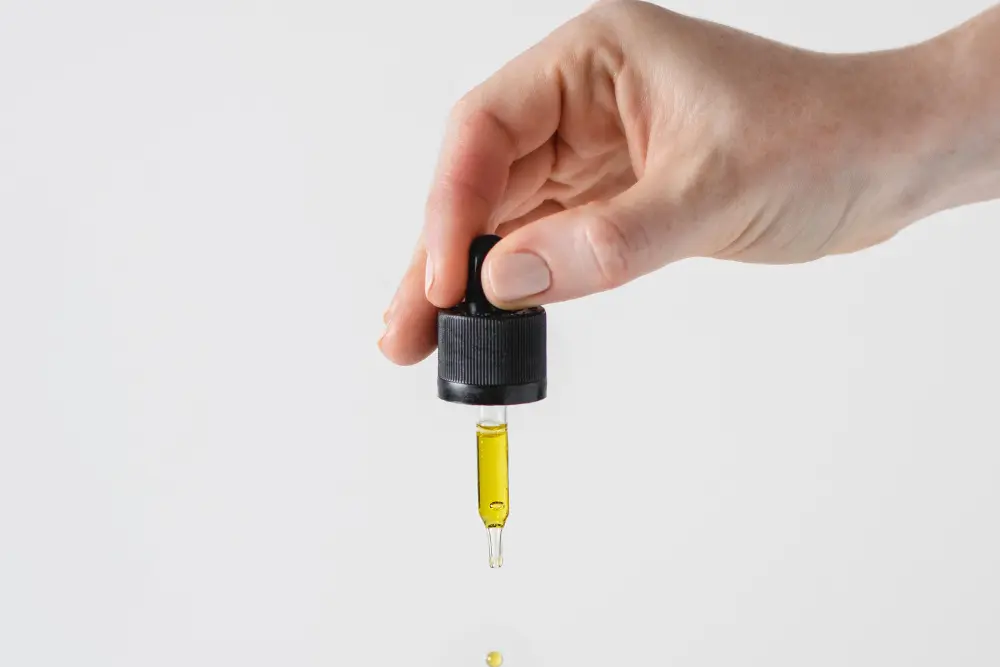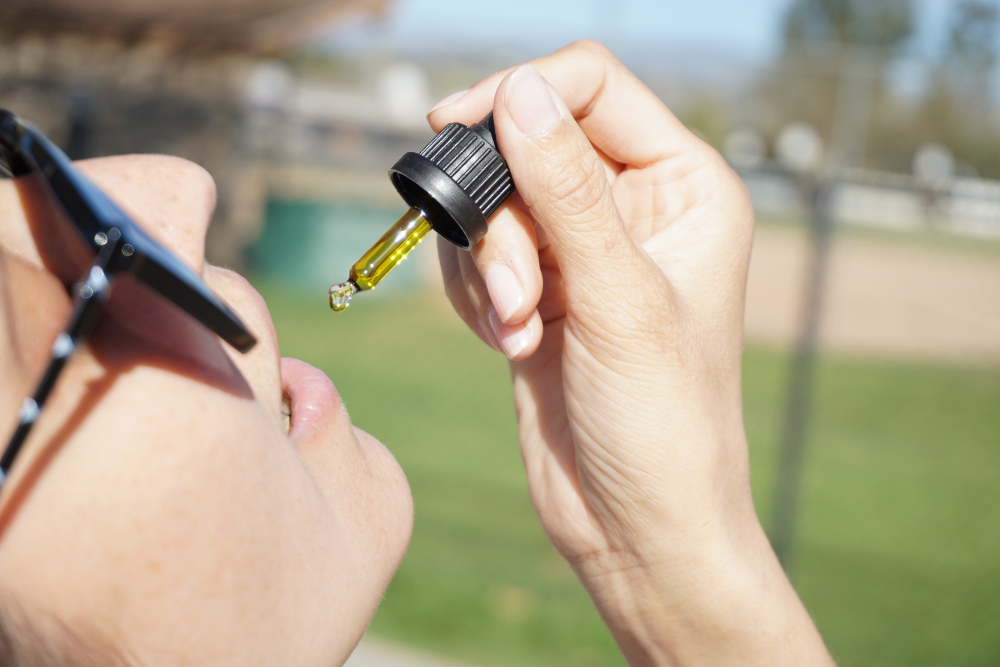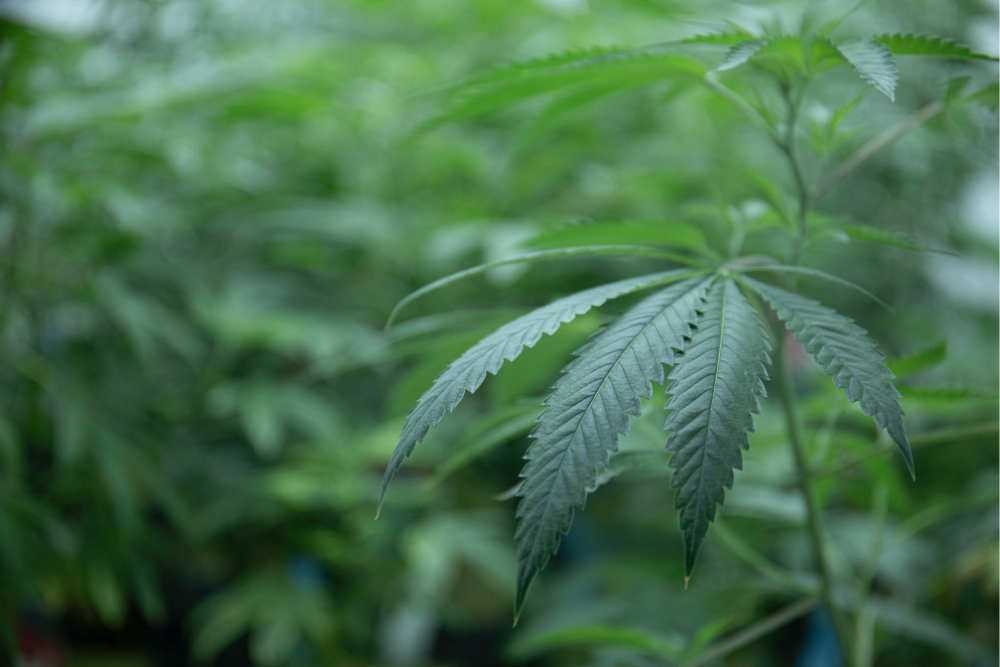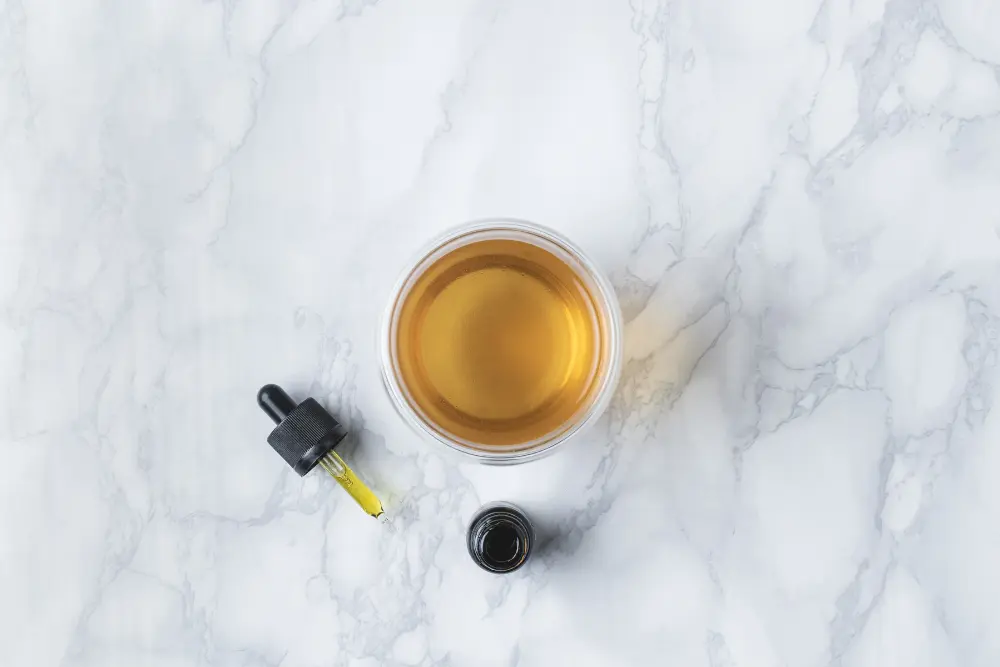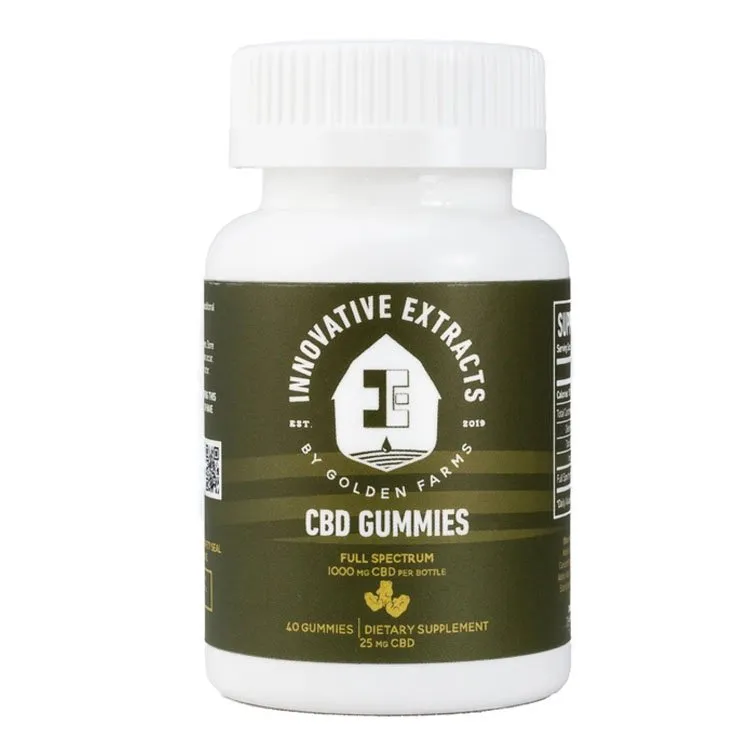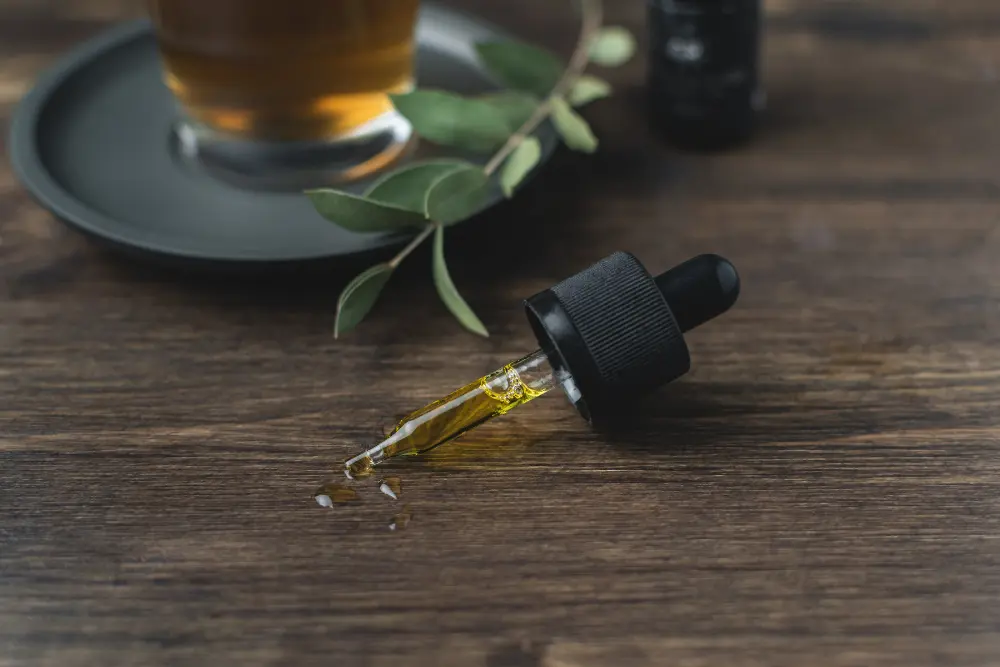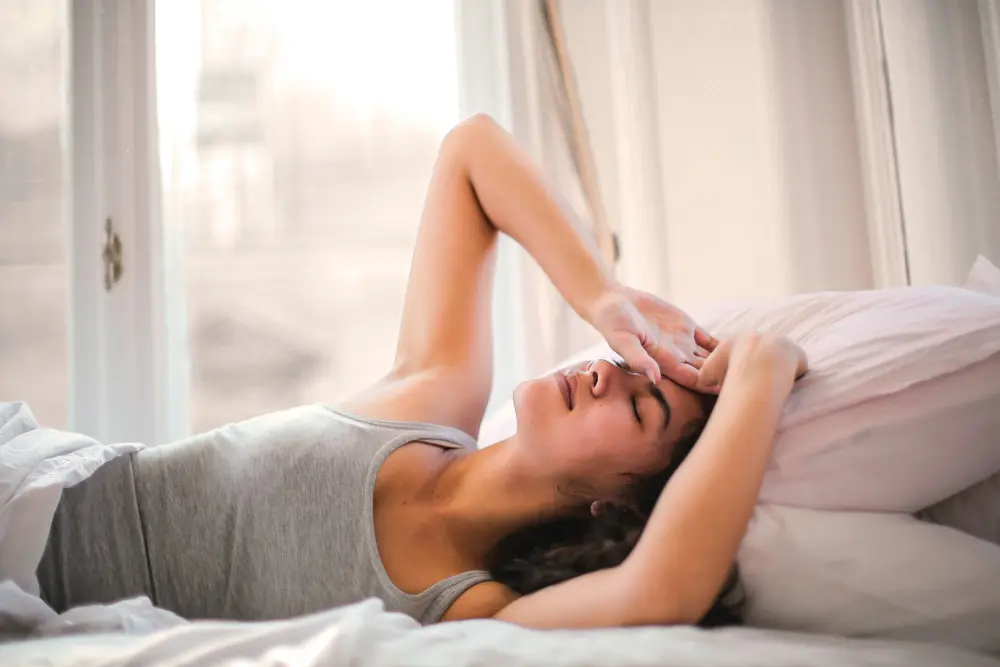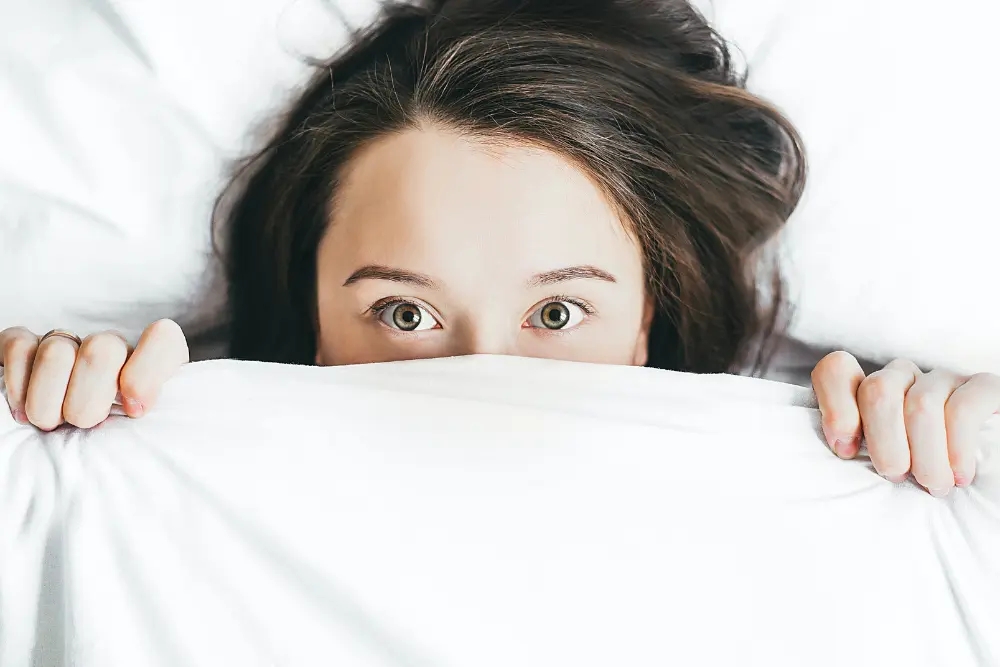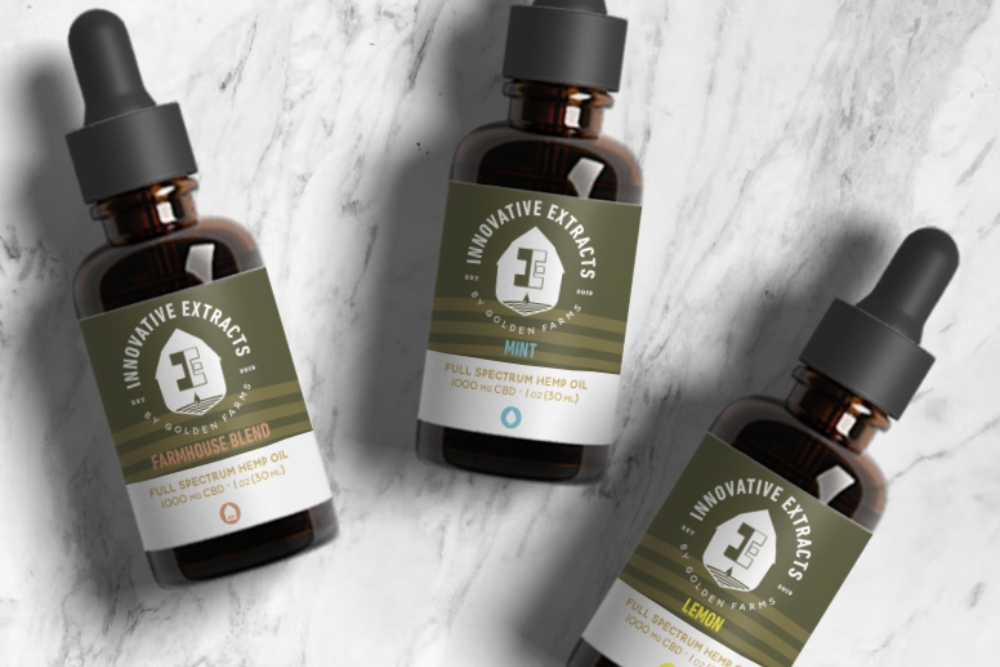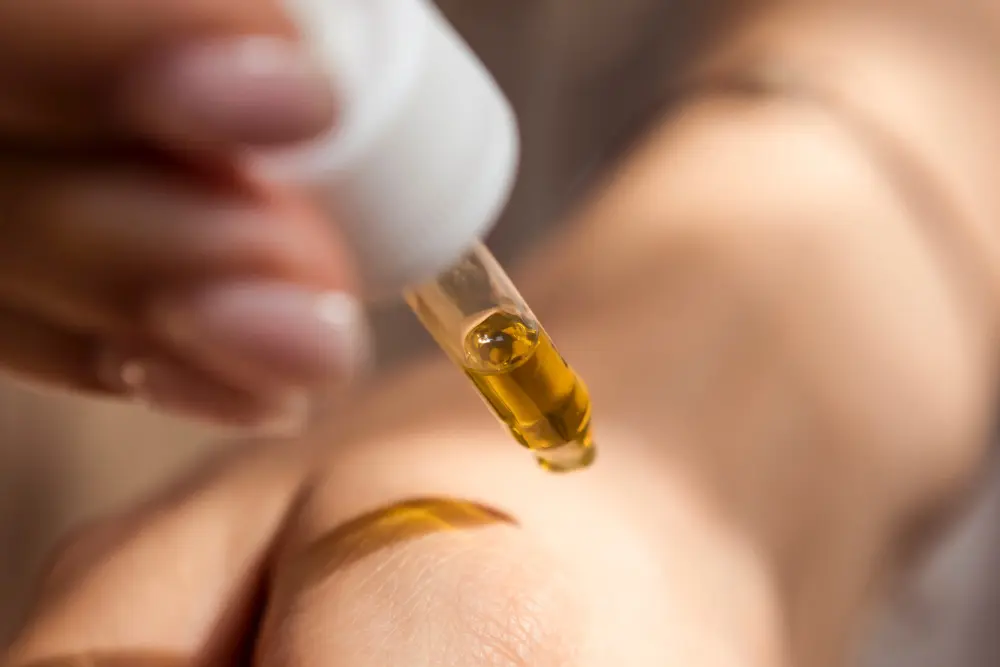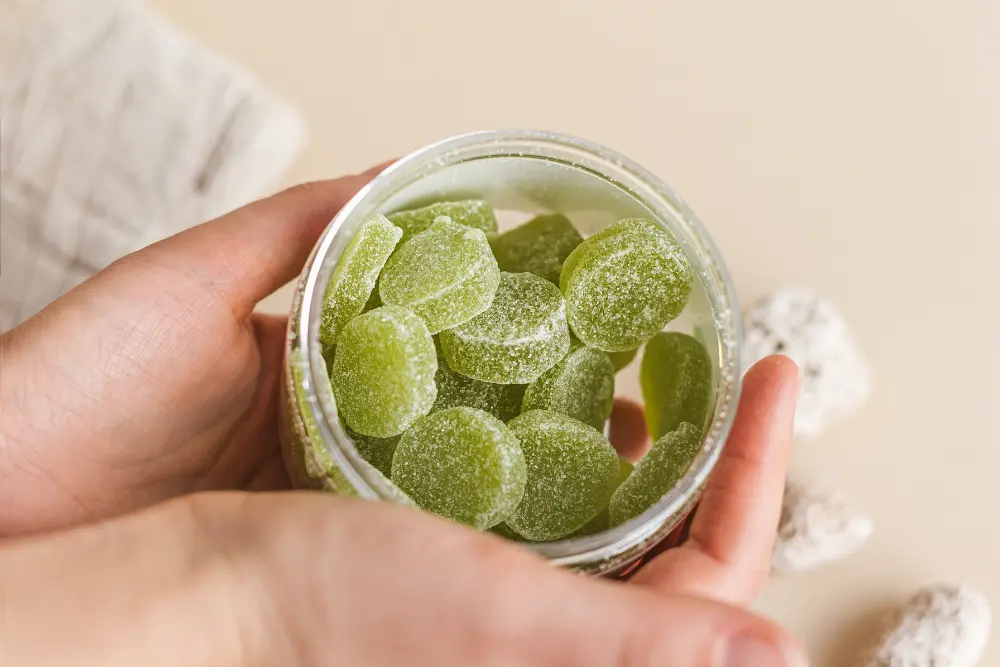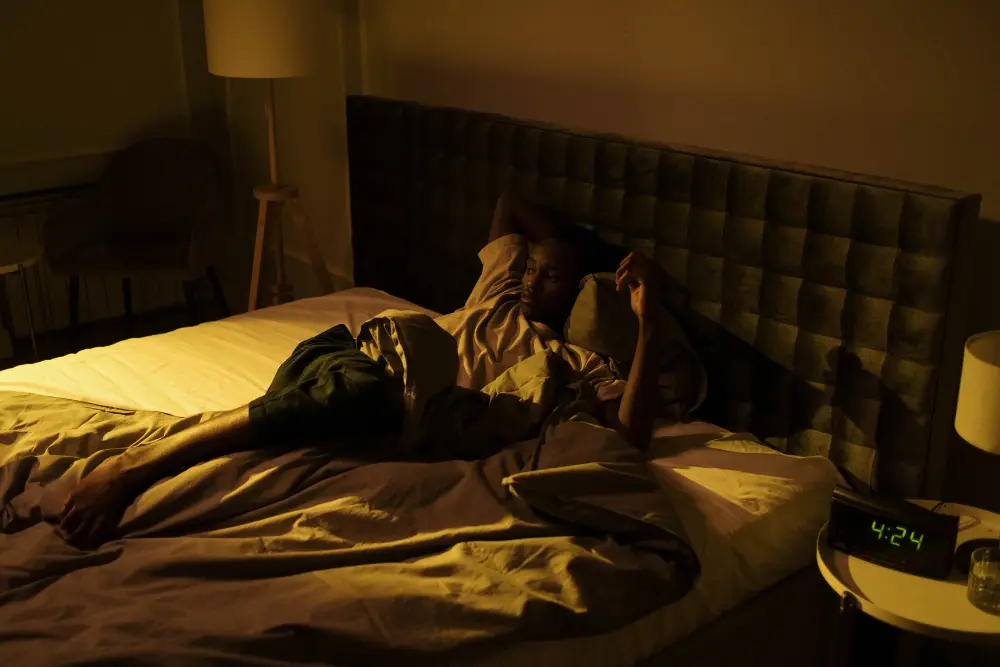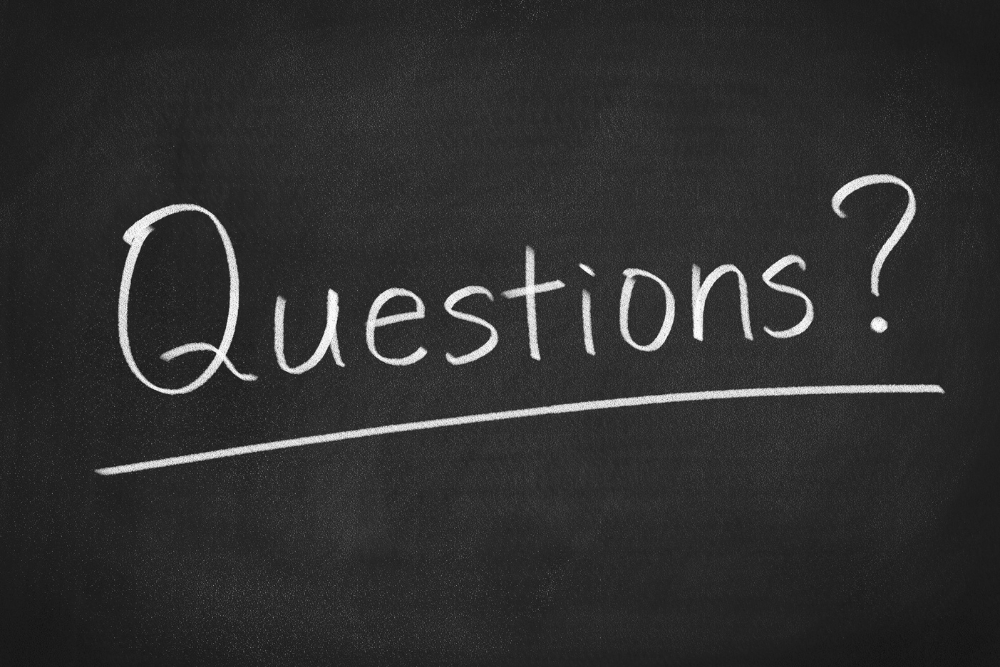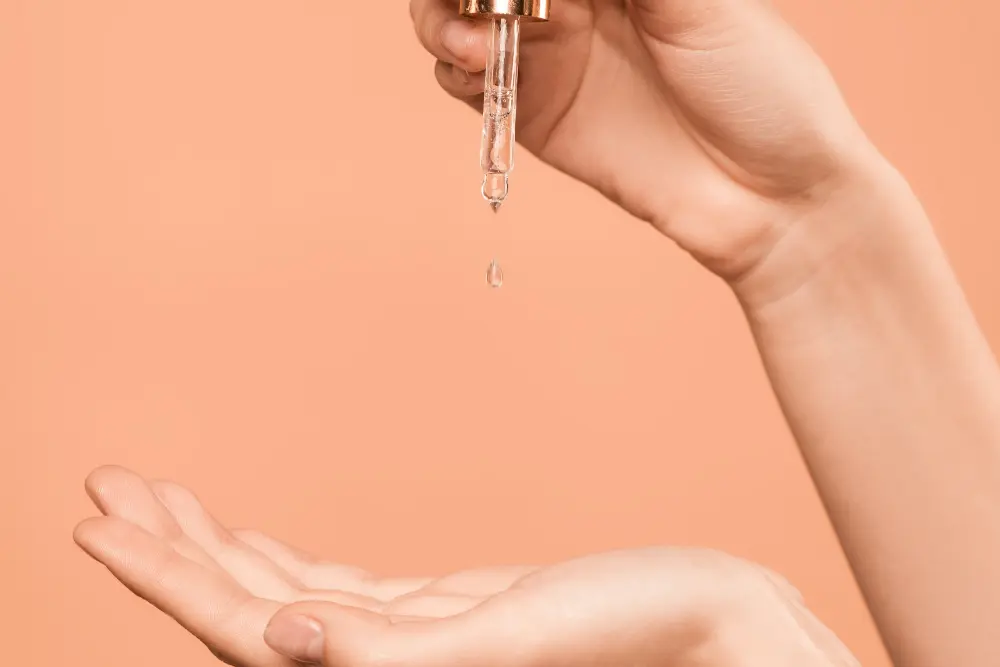HempTalk - Business Blogs and Press Releases
Can CBD Sleep Drops Help You Get a Good Night’s Sleep?
Many people worldwide suffer from sleep disorders, which can negatively impact physical and mental health. CBD Sleep Drops are a natural remedy that may help to improve sleep quality for those who suffer from these conditions.
Using a combination of natural ingredients like CBD, melatonin, and valerian root, these drops can help to reduce anxiety, promote relaxation and help you get a good night's sleep. In addition to relieving sleeplessness, CBD sleep drops may provide complementary and integrative health benefits, such as reducing inflammation and improving mood.
For those looking for an all-natural way to improve their sleep, CBD sleep drops offer a safe and effective solution. Here is everything you need to know about how they work and how to use them.
What Does the Science Say About CBD?CBD is a cannabinoid found in the cannabis plant, and research suggests it can provide numerous health benefits. While CBD has only been legal for a short time, it has been studied extensively for its potential to alleviate anxiety and depression, reduce inflammation, improve sleep, and even provide pain relief.
Many studies indicate that results are preliminary and more research is needed to confirm any effects. However, CBD is gaining traction in the wellness space between widespread consumer popularity, positive anecdotal evidence, and promising research results.
CBD for sleepCBD is a natural remedy for various sleep-related issues, including insomnia and other sleep disturbances. The cannabinoid appears to interact with the body's endocannabinoid system (ECS) to promote relaxation and reduce anxiety. Recently, a 2022 study noted that CBD helped alleviate symptoms of complex sleep-related behaviors.
CBD Sleep Drops may also help to regulate the hormones responsible for maintaining our circadian rhythm, which controls our sleep or awakeness. They may also help reduce inflammation and improve mood, contributing to better sleep quality overall.
CBD for stress and anxietyCBD has been studied for its ability to help reduce stress and anxiety. Studies show that CBD may work by interacting with serotonin receptors in the brain, which can increase levels of calming neurotransmitters such as dopamine and GABA. Additionally, CBD may counteract cortisol, a hormone released in response to stress.
CBD for painCBD has also been studied for its potential to relieve pain by reducing inflammation and modulating pain perception. A 2021 study found that CBD may be effective in treating chronic pain with minimal side effects, as patients indicated positive experiences with the treatment.
Buying CBD Sleep Drops: What To Look ForWhen shopping for CBD sleep drops, look for a product that is high quality and tested by a third party. Always read through the ingredients list and ensure there are no other potentially dangerous additives in the product.
It is also important to ensure that CBD oil is derived from organic hemp grown in the United States, as some overseas producers may use pesticides or solvents on their crops. There are many CBD sleep drops on the market, so do your due diligence to ensure you get a top-quality product. Look for organic and gluten-free carrier oils like organic coconut MCT oil or avocado oil for topicals. Here is what to look for when shopping for CBD sleep drops.
Reading CBD Product LabelsWhen selecting a CBD sleep drops product, it is essential to read the labels carefully. Look for information about the concentration of CBD in each serving size and any other ingredients that may be present. You should also check to ensure the manufacturer uses laboratory testing and is transparent about their results.
Many CBD labels will only tell you a little, so look for companies that provide detailed information about their product. Look for a website, contact information, and clear instructions for how to use the product. It is likely not a reputable source if you need help finding a way to look up or contact the maker.
Reading lab reports on hemp-based productsEnsure your CBD sleep drops product is lab tested and verified for quality. Look for a Certificate of Analysis (COA) from an independent laboratory, which will provide detailed information about the product's contents. The COA should include information on the levels of terpenes, cannabinoids, and other compounds in the product, as well as any potential contaminants.
Key Factors To Check In a Lab ReportWhen you review the lab report, there are key factors to examine. Here are the most critical things to check.
CBD and terpene concentrationsThe lab report should include the amount of CBD, THC, and other cannabinoids present in the product. It should also list terpenes and any other compounds present. While the exact concentrations will vary depending on the product, it is vital to ensure all of the compounds are close to the amount stated on the bottle.
Additionally, confirm that the product contains no more than 0.3% THC, as this is the legal limit in most locations where cannabis products are illegal or restricted.
PesticidesCannabis is a plant that can be vulnerable to pests and other contaminants. While it is perfectly normal for a cultivator to use something to keep pests away, they must then decontaminate the product to ensure it is safe for consumption. The lab report should include information confirming that CBD sleep drops are pesticide-free.
Heavy metalsPoorly made or contaminated products can contain traces of heavy metals, which can be harmful no matter how you consume your CBD. The lab report should include information on the levels of heavy metals present in the product. It is a good idea to look for products certified as free from heavy metals by an independent laboratory.
Different Forms of CBD and How To Use ThemThere are many different forms of cannabidiol (CBD) available, each offering unique benefits and ways of using the supplement. The most popular forms of CBD include tinctures, edibles, topical creams and salves, and vape oils. Each form has its advantages and disadvantages.
CBD tincturesTinctures are a popular form of CBD because they are easy to use, can be quickly absorbed into the bloodstream, and provide an accurate dosing method. They come in oil- and alcohol-based forms and flavored options like mint or citrus. With a tincture, the drop is placed underneath your tongue and held for up to 60 seconds before swallowing. CBD tinctures can be used for both acute and chronic health conditions, as well as for daily supplementation.
CBD ediblesEdibles are a great way to get your daily dose of CBD, as they are easy to make at home or buy pre-made from various companies. CBD edibles are available in many forms, including gummy candies, cookies, brownies, and chocolates. Edibles can be taken as a snack or to treat a specific condition.
Topical CBDTopicals provide an easy way to apply CBD directly to the skin for localized relief of pain and inflammation. Topical creams, balms, and salves are applied directly to the affected area for fast relief. CBD topicals are available in various forms, such as lotions, body butter, ointments, bath salts, and even shower gels. Nowadays, you can find CBD in almost any product you apply to your body!
CBD vapesVaping is a popular way to consume CBD and offers both convenience and immediate effects. Vape cartridges come in many different flavors, including fruit and candy-flavored options. Vapes are also easy to carry throughout the day for discreet use whenever necessary. However, some research suggests that vaping may not be the healthiest option, as some vape pens contain other potentially harmful chemicals.
CBD Terms To KnowShopping for CBD can be confusing, so it is essential to understand some of the most commonly used terms associated with the supplement. Here are some critical CBD terms to help you navigate the market.
CBD isolateCBD isolate is a highly concentrated form of cannabidiol stripped of all other compounds, including THC. Isolate products contain only pure CBD and are for those who want to avoid any traces of hemp extract besides the CBD compound.
Broad-spectrum CBDBroad-spectrum CBD contains all the cannabinoids found in the hemp plant but with the THC removed. This product is excellent for those who want to enjoy the benefits of multiple compounds but do not wish to consume any trace amounts of THC.
Full-spectrum CBDFull-spectrum CBD products contain all the compounds found in the hemp plant, including trace amounts of THC. This product is typically preferred by those who want to experience the "entourage effect" or take advantage of all the naturally present compounds in cannabis.
However, most of these products contain under 0.3 percent THC, which is insufficient to get you high. You may still find these products for sale in some states where THC is restricted but proceed with caution unless you know your local regulations.
FlavonoidsFlavonoids are a class of plant-based compounds known for their antioxidant properties. They have been linked to various health benefits, although research suggests their role in human health and wellness is negligible. Cannabidiol products may contain flavonoids in trace amounts, but their presence is not essential for the therapeutic effects of CBD.
TerpenesTerpenes are aromatic compounds found in cannabis, and they help give each strain its distinctive smell. They are linked to various health benefits, but their role in human health is not fully understood. Some terpenes, such as beta-caryophyllene, have been found to interact with the endocannabinoid system, but research is still ongoing.
CBD products may contain terpenes, although these are often only present in trace amounts. However, in recent years, some manufacturers have begun to specifically target terpenes as part of their formulation process, so you may find CBD products that contain higher concentrations of these compounds. For example, some products are billed as a "sleep terpene" blend or an "energizing" blend.
What Sleep Disorders Can CBD Help Treat or Alleviate?One of the primary uses for CBD is as a sleep aid. Many people have reported that taking CBD has helped them to fall asleep faster and enjoy a more restful sleep. While more research is needed to determine the exact mechanism of action, CBD can help to reduce anxiety and relax the mind and body.
If you experience difficulty falling or staying asleep, you may benefit from taking CBD before bed. It is not a replacement for traditional sleep medications, but many people have found it to be an effective natural remedy with few side effects. Here are some of the most common sleep disorders people turn to CBD for help with:
InsomniaSuffering from insomnia can have devastating effects on a person's mental and physical health. This sleep disorder can impede your productivity and rob you of valuable sleep time essential for restoring the body and boosting overall wellness. Poor sleep from insomnia can result from stress, anxiety, and depression.
CBD has been studied and found to help reduce anxiety and provide feelings of relaxation that may promote deeper sleep and make it easier to fall asleep quickly. For those living with this frustrating condition, incorporating CBD into their nightly routine may reliably improve their ability to get the restful night's rest they desperately need.
Restless leg syndrome (RLS)Restless leg syndrome (RLS) is a neurological disorder that causes uncomfortable sensations in the legs and an irresistible urge to move them. These symptoms can be particularly disruptive during sleep, leading to poor-quality rest and daytime fatigue.
Research suggests that CBD has the potential to help reduce some of the feelings of discomfort associated with RLS by activating the endocannabinoid system, which is responsible for regulating a variety of bodily functions, including movement. By stimulating the CB1 and CB2 receptors, CBD may reduce the frequency and severity of RLS symptoms.
CBD for night terrorsNight terrors result from a sleep disorder that suddenly causes people to wake up in extreme fear and anxiety. People who suffer from this condition may be unable to move or speak and often have difficulty returning to sleep after the episode has passed.
The exact cause of night terrors is still unknown, but research suggests that CBD may help to reduce the anxiety associated with this condition. CBD can help improve sleep quality and reduce fear and panic by activating the endocannabinoid system. However, it is essential to note that more research is needed on the effectiveness of using CBD for night terrors.
REM sleep behavior disorder (RBD)REM sleep behavior disorder (RBD) causes vivid and intense dreams that may lead to physical movements during sleep. This condition can cause people to act out their dreams, resulting in significant disruptions to the quality of their rest.
CBD has been studied for its potential to help reduce symptoms of RBD. By regulating the endocannabinoid system, CBD may reduce physical movements during sleep and aid sleep quality, making it easier to return to sleep after an RBD episode. However, while there is much anecdotal evidence and some research to support its use, other studies have shown little efficacy. More research is needed before recommending CBD as an effective therapy for this condition.
Sleep apneaOne of the few conditions CBD will not help as much with is sleep apnea. Sleep apnea is a potentially serious disorder in which breathing repeatedly stops and starts during sleep. People who suffer from this condition can experience periods of shallow breathing or pauses that can last from a few seconds to minutes.
While research on the effects of CBD on sleep apnea is still ongoing, there is no evidence to suggest that it can be used as an effective therapy for this condition. CBD primarily acts on the central nervous system, but sleep apnea is a disorder of the respiratory system. As such, it may be unable to regulate the body's breathing patterns to alleviate this condition.
When To See a Doctor About Your SleepIf you are new to CBD or have questions about its use, do not hesitate to contact your healthcare provider. They can provide additional information and guidance on how best to take advantage of CBD's possible benefits. Plus, they can refer you to a licensed medicinal cannabis practitioner if necessary.
CBD is not meant to replace traditional treatments for sleep disorders and should only be used as an adjunct therapy. If your sleep issues persist after trying CBD, it is best to consult a doctor about other treatment options. They may recommend medications or lifestyle changes to help you get a restful night's sleep.
CBD is a promising natural remedy that could help improve sleep quality. Discuss it with your healthcare provider if you are considering using CBD for sleep.
Frequently Asked QuestionsHow long does it take for CBD to work?Generally, it takes about 30-60 minutes for CBD to start working. However, the effects of CBD may vary from person to person and depend on a variety of factors such as body weight, concentration levels, and delivery method. If you vape or smoke CBD, you can immediately feel the effect. If you take it orally or topically, it may take longer to feel the benefits.
Once the effects of CBD kick in, they can last for several hours. However, CBD does not have psychoactive effects, so you will not experience any "high" or altered state. While taking CBD right before performing activities requiring intense concentration or focus is not recommended, it generally will not impair your ability to function.
What is the best dosage of CBD for sleep?When it comes to dosage, there is no one-size-fits-all approach. The best way to determine the optimal amount of CBD for sleep is to start with a low dose and gradually increase it until you find the best dose. People new to CBD should generally begin with somewhere between 5-15 mg. If this is not enough, you can increase the amount in 5 mg increments until you reach a comfortable level.
CBD oil for sleep comes in many different sizes depending on the product, so you may need to do some math to determine the proper dosage for your needs. If in doubt, always consult a doctor or healthcare provider before taking any new supplement. They can provide personalized advice and guidance on how much CBD is best for you.
What time should I take my CBD sleep drops?Typically, it is best to take your CBD just before bedtime, allowing the effects of the CBD to kick in as you are getting ready to sleep. However, if you prefer to take it for general relaxation and stress relief throughout the day, that is also an option. Just be mindful of potential side effects (like drowsiness) that could affect your daily activities.
Ultimately, the best time to take CBD sleep drops is whatever works for you and your lifestyle. It may take some trial and error to find out what works best for you, but with some experimentation, it is possible to find the perfect time for a good night's rest.
Can I take CBD drops if I take other sleep aids?Generally, CBD is safe and non-addictive, but it is always best to consult a doctor before combining it with other sleep aids. Your healthcare provider can provide personalized advice on which medications and supplements are safest for you.
Will CBD give me the same feeling as marijuana?No. While CBD and marijuana are both derived from the cannabis plant, they are two distinct compounds with different effects on the body. Unlike THC, CBD does not produce any psychoactive effects or a "high" feeling, meaning you can take CBD without feeling intoxicated or altered.
There is very little noticeable sensation when taking CBD – it is not like a sleeping pill or alcohol, where there is an almost immediate change in how you feel. Instead, the effects of CBD are typically more subtle and can take some time to set in. Still, more sensitive individuals may notice a slight calming effect or relief from aches and pains.
Will CBD appear on a drug test?It is unlikely that CBD will appear on a drug test. However, it is essential to note that some CBD products contain trace amounts of THC, which could cause a false positive result in some drug tests. If you are subject to regular drug tests, it is best to opt for a broad-spectrum or isolate product, as these do not contain any THC. It is also a good idea to check the third-party lab results of any product you are considering, as this will indicate what it has.
Is CBD addictive?No. Research shows that CBD is not addictive and is generally well-tolerated by the body. It is also important to note that CBD does not produce any psychoactive effects, so it cannot be abused or misused like other drugs. Additionally, no reports of overdoses or severe side effects associated with CBD have been reported.
Cessation of CBD should not result in any withdrawal symptoms, but it may take time for the body to adjust if CBD has been consumed regularly over a long period. As with any medical treatment, always consult your doctor before beginning or stopping a new supplement regimen.
Can I give CBD to my pets?Yes, CBD can be beneficial for pets as well! However, it is important to note that not all CBD products are safe for animals because of other additives that may appear in certain products. It is best to consult a veterinarian before giving your pet any supplement. The vet can provide personalized advice and guidance on the best product and dosage for your pet.
Can I travel with CBD?Traveling with CBD products is generally safe, but it is essential to check the laws and regulations of your destination before traveling with any CBD product. In some countries, CBD remains illegal due to its association with cannabis, so always check local laws and regulations before traveling with any CBD product. Traveling locally with your CBD is generally not risky if you live in a U.S. state or territory where CBD is legal.

